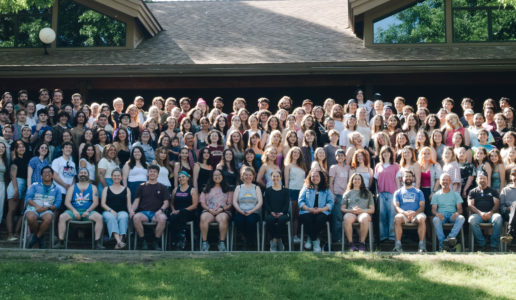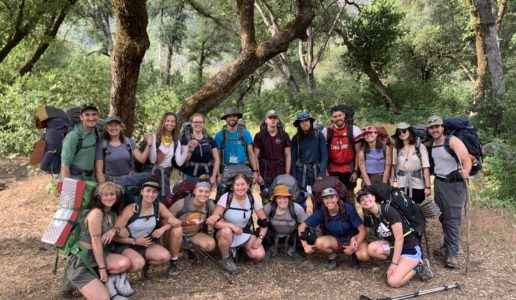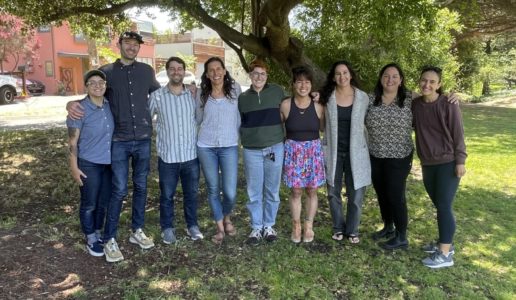Finding Our Best Selves at Camp: A Social Emotional Learning Success Story
This week, one of our Camp Therapists, Melissa Kelley shares her thoughts on the importance of Social Emotional Learning and how we put those skills to practice at camp. Below, enjoy photos from throughout the day!
During Session II at camp, a third-grade camper met with me because she had a fight with a friend during one of her bunk activities. She was upset and embarrassed to admit that she had lost her temper during the fight, and in her anger had said some things she regretted. When we talked about tools she could use to help calm her anger and resolve the conflict in a better way in the future, she had an epiphany. She realized that she had learned many of these tools in a Social and Emotional Learning (SEL) class at school, and that now she was receiving coaching in a real-life situation about how to use them. She was so excited that she taught her bunk these tools she knew from school during a bunk discussion later that day. School had taught her the concepts of SEL, but Camp Tawonga showed her how to live it.
For several years, I have had the privilege of teaching SEL at various private schools around the San Francisco-Bay Area. Defined as a process for learning life skills, SEL includes how to deal with oneself and with others in relationships, as well as how to meet those goals effectively. SEL curricula allow instructors to teach skills such as conflict resolution, anger management, friendship-building tools, and perseverance in the face of challenges. A recent meta-analysis of 213 rigorous academic studies of the effectiveness of SEL instruction in schools indicates that students receiving quality SEL instruction demonstrated better academic performance, improved attitudes and behaviors towards learning, fewer negative behaviors in the classroom, and reduced emotional distress. These types of skills not only set students up for success in the classroom, but prepare them for successful careers working with others.
The good news is that there is now a growing awareness of the importance of developing SEL skills in childhood and adolescence — a critical period in which it is easier to learn these skills. The bad news is, by the very nature of many educational institutions, learning SEL skills will always be secondary to learning academic skills. This means that learning is mainly done through a curriculum in the classroom, rather than through experience when children and teens actually experience SEL challenges such as during recess and lunch, after-school, at home fighting with a sibling — or even at camp.
At Tawonga, that entire model is flipped on its head. The primary reason for being at camp — besides getting dirty and having lots of fun — is to make friendships and be part of a loving and inclusive Jewish community. Getting support and guidance for solving a fight with a friend (if you want it) is readily available at camp, from a counselor, Unit Head, the maintenance staff member you befriended, or the camp therapist. Staff members support campers, and campers support each other through the common, occasional bouts of homesickness and the blues, and celebrate each others’ victories in trying a Challenge Course for the 1st (or 2nd, or 3rd) time, learning to play Ga-ga, or telling jokes in front of 300 people at an all camp talent show.
At Camp T, we talk to campers about how they want to be treated and how they want to treat others, about being respectful of other campers’ property and taking turns doing chores to keep bunks and camp running, and about showing up with respect and kindness. It is truly SEL in action — lived from clearing breakfast dishes in the morning, to sharing a flashlight while walking back to the bunk at night.
I cannot think of a better SEL learning experience than Camp Tawonga; its true beauty lies in the fact that while most kids just think they are having fun, they don’t realize how much they are learning for a lifetime. Along with great memories, children are learning to self-soothe their fears and anger, how to be a good friend and team member, how to work through conflict, and how to be their best selves.


